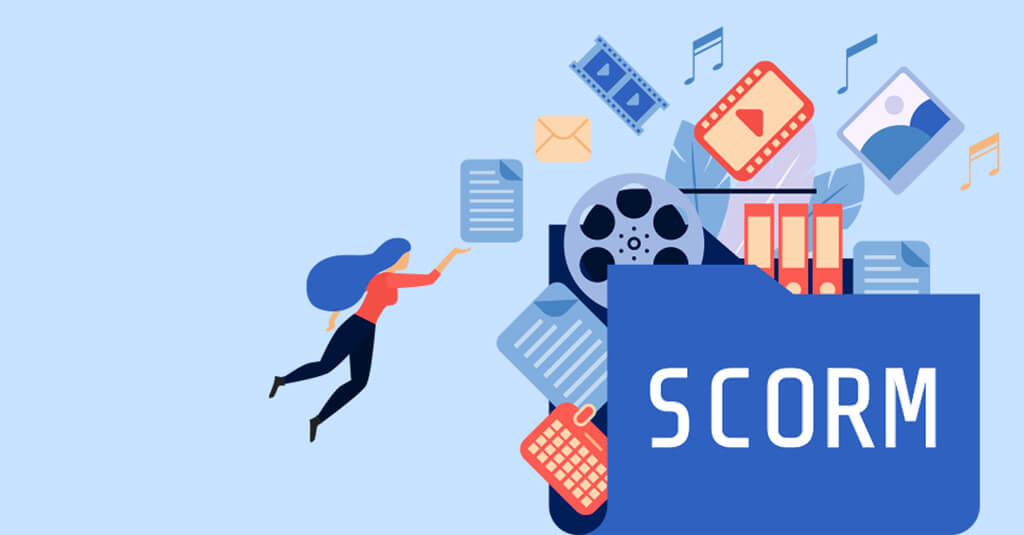Hello!
 Employee training is a cornerstone of organizational success, driving productivity, engagement, and adaptability. To ensure training programs are consistent, scalable, and effective, adopting SCORM compliance is essential.
Employee training is a cornerstone of organizational success, driving productivity, engagement, and adaptability. To ensure training programs are consistent, scalable, and effective, adopting SCORM compliance is essential.
SCORM, or Sharable Content Object Reference Model, is a set of standards that ensures e-learning content is compatible and interoperable with learning management systems (LMS).
This article explores how SCORM compliance transforms employee training and why choosing a SCORM-compliant LMS is critical for maximizing training outcomes.
1. The Importance of SCORM Compliance
 SCORM compliance allows organizations to create training courses using authoring tools that adhere to universal e-learning standards. This ensures content can be deployed across various LMS platforms without compatibility issues.
SCORM compliance allows organizations to create training courses using authoring tools that adhere to universal e-learning standards. This ensures content can be deployed across various LMS platforms without compatibility issues.
By eliminating the need for custom integrations, SCORM-compliant solutions save time and resources, enabling organizations to focus on delivering impactful training.
Adopting these standards streamlines course deployment and enhances efficiency, making it easier to achieve training goals.
2. Effortless Integration with Learning Management Systems
 SCORM compliance simplifies the integration of e-learning content with existing or new LMS platforms. Whether you’re using a current system or exploring SCORM-compliant LMS options, this interoperability enables seamless tracking, management, and reporting of employee training. Trainers can assign courses, monitor learner progress, and generate detailed reports for evaluation. This integration ensures that training data is centralized, making it easier to assess performance and refine programs.
SCORM compliance simplifies the integration of e-learning content with existing or new LMS platforms. Whether you’re using a current system or exploring SCORM-compliant LMS options, this interoperability enables seamless tracking, management, and reporting of employee training. Trainers can assign courses, monitor learner progress, and generate detailed reports for evaluation. This integration ensures that training data is centralized, making it easier to assess performance and refine programs.
3. Consistency in Training Delivery
SCORM-compliant content ensures a uniform training experience across devices and platforms. Employees can access training modules on desktops, laptops, tablets, or smartphones without encountering formatting or functionality issues. This flexibility allows learners to engage with training at their convenience, fitting sessions into busy schedules. Consistent delivery guarantees a high-quality learning experience, regardless of the device or environment, fostering better engagement and retention.
4. Improved Interactive Learning Experience
SCORM-compliant e-learning content enhances engagement through interactive elements like quizzes, assessments, simulations, videos, audio, and branching scenarios. These features create an immersive learning environment that encourages active participation and deeper understanding. By making training engaging and relevant, SCORM-compliant content improves knowledge retention and ensures employees can apply what they’ve learned effectively in their roles.
5. Real-Time Progress Tracking
One of SCORM’s standout benefits is its ability to enable real-time tracking of learner progress. Trainers can monitor performance, identify knowledge gaps, and provide targeted interventions or additional resources as needed. Learners can also track their own progress, review completed modules, and revisit sections for reinforcement. This capability allows organizations to evaluate training effectiveness accurately and make data-driven adjustments to optimize outcomes.
6. Scalability and Future-Proofing
 SCORM compliance ensures training programs are adaptable to evolving technologies and instructional design trends. Using a SCORM-compliant course builder, organizations can create dynamic, engaging content that remains compatible with various LMS platforms. As technology advances, SCORM-compliant content can be updated or expanded without disrupting the user experience or interactive features. This scalability future-proofs training initiatives, ensuring long-term relevance and effectiveness.
SCORM compliance ensures training programs are adaptable to evolving technologies and instructional design trends. Using a SCORM-compliant course builder, organizations can create dynamic, engaging content that remains compatible with various LMS platforms. As technology advances, SCORM-compliant content can be updated or expanded without disrupting the user experience or interactive features. This scalability future-proofs training initiatives, ensuring long-term relevance and effectiveness.
7. Simplified Content Management
SCORM organizes e-learning content into modular “Sharable Content Objects” (SCOs), which can be reused across courses or shared with other organizations while retaining tracking and functionality. This modular approach reduces redundancy, streamlines course creation, and simplifies content management. Organizations can efficiently update or repurpose SCOs, saving time and resources while maintaining a cohesive training structure.
Conclusion
 SCORM compliance is a game-changer for employee training, offering efficiency, consistency, and scalability. By adopting SCORM-compliant e-learning solutions, organizations ensure seamless integration with LMS platforms, consistent delivery across devices, and engaging, interactive learning experiences.
SCORM compliance is a game-changer for employee training, offering efficiency, consistency, and scalability. By adopting SCORM-compliant e-learning solutions, organizations ensure seamless integration with LMS platforms, consistent delivery across devices, and engaging, interactive learning experiences.
Real-time progress tracking empowers trainers to support learners effectively, while the modular structure simplifies content management.
Most importantly, SCORM compliance future-proofs training programs, keeping them adaptable to technological advancements. In today’s dynamic business landscape, embracing SCORM standards unlocks the full potential of your workforce, driving success through impactful and efficient training initiatives.
Thank you!
Join us on social media!
See you!






